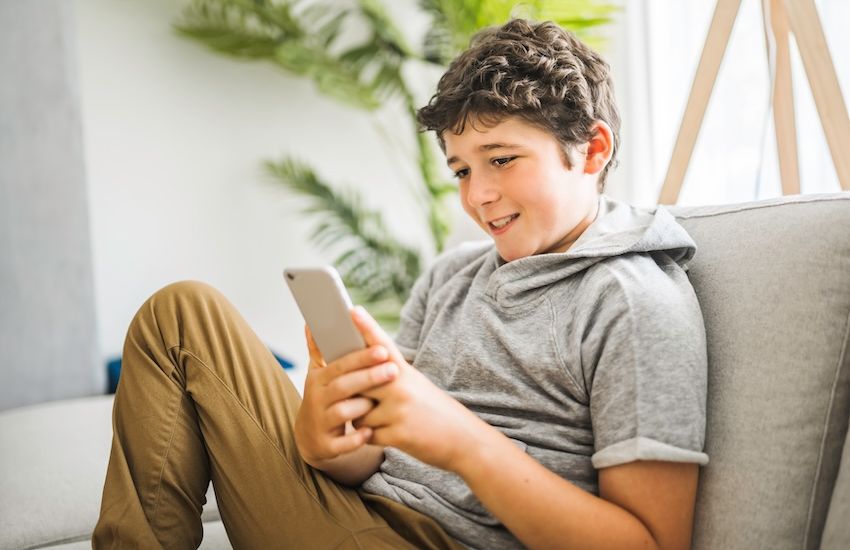


Education has poured cold water on a call for a ban on smartphones for under 16s as it sets out in detail its stance on the issue.
Deputy Lester Queripel has pressed the committee for more detail of its approach to smartphone use after Ladies College Principal Daniele Harford-Fox, called on the States to introduce a ban on smartphones for under 16 year olds, saying that there’s growing evidence they are restructuring brains and leading anxiety and depression and also social functioning and emotional regulation.
In response, Education, Sport & Culture said it had current plans to discuss or progress an outright ban on smartphones for children and young people as it has no mandate to do so.
“The Committee does have a responsibility to ensure the curriculum used in our education settings assists children and young people to have a balanced approach to the benefits and disbenefits of smartphones/online technology.
“With regard to the use of smartphones by children and young people in education settings, please note that as part of our Education Strategy, the Committee empowers leaders to lead and make decisions about the operation of the education settings for which they are responsible. This means the Committee’s usual stance is not to interfere in operational matters that are best addressed by education professionals, but it does have a policy oversight role.”
Committee members have had an interim role as governors to see what operational policies are in place, but moves to get the public involved in those positions could help inform what happens in the future.
“Our hope in widening out governance roles to parents/carers and members of the community local to each school is to hear from other voices with a stake in the education of our children and young people and our community.”
In States primary schools, if it is necessary for a pupil to bring a smartphone to school to stay in touch with their family, for example, it's handed in to staff at the start of the day, and returned to the child at the end.
In States secondary schools, the policy is that smartphones are ‘off and away’ during the school day unless staff say otherwise.
Pictured: Education President Deputy Andrea Dudley-Owen.
“It is our view that there is a role for parents/carers to monitor and manage their child’s use of smartphones/other smart devices beyond the school environment, and to ensure that both they and their children are aware of the potential risks associated with unmonitored access to the internet and social media," ESC added.
“We encourage parents/carers to have frequent and open discussions with their children on this topic, and facilitate sessions in schools to support parents to keep up to date in this regard.”
Students are given guidance as part of the PSHCE and computing curriculum covering topics such as:
• Knowing about the benefits of having a balanced approach to spending time online;
• Knowing the need for on-line safety rules, understanding the law and that websites and online platforms have rules about their use (e.g. age limits) that should be followed;
• Knowing that there may be people online who could upset or harm them and how to recognise abusive relationships when others are using manipulation, persuasion or coercion or online harassment and how to respond, knowing who to talk to if they have concerns about something an adult does online or if something on a device worries or frightens them;
• Knowing that other people’s online identity can be different from that in real life and knowing ways to identify risk and manage personal safety online, and where to get help;
• Knowing about different types of online intimacy and the indicators of positive, healthy relationships and unhealthy relationships, including online, and what support services are available;
• Knowing how to seek, give, not give and withdraw consent (in all contexts, including online) and how to recognise abusive relationships when others are using manipulation, persuasion or coercion or online harassment and how to respond;
• Knowing about the unacceptability of prejudice-based language and behaviour, offline and online and about the need to promote inclusion and challenge discrimination, and how to do so safely, including online;
• Knowing how to recognise peer influence and to develop strategies for managing it, and knowing the legal and ethical responsibilities people have in relation to online aspects of relationships;
• Knowing how to evaluate ways in which their behaviours may influence their peers, positively and negatively, including online and how to recognise the unwanted attention of others (such as online harassment and stalking), and knowing ways to respond and how to seek help;
• Knowing about the impact of attitudes towards sexual assault and to challenge victim blaming, including when abuse occurs online; and
• Knowing the skills to challenge or seek support for financial exploitation in different contexts, including online.
Comments
Comments on this story express the views of the commentator only, not Bailiwick Publishing. We are unable to guarantee the accuracy of any of those comments.